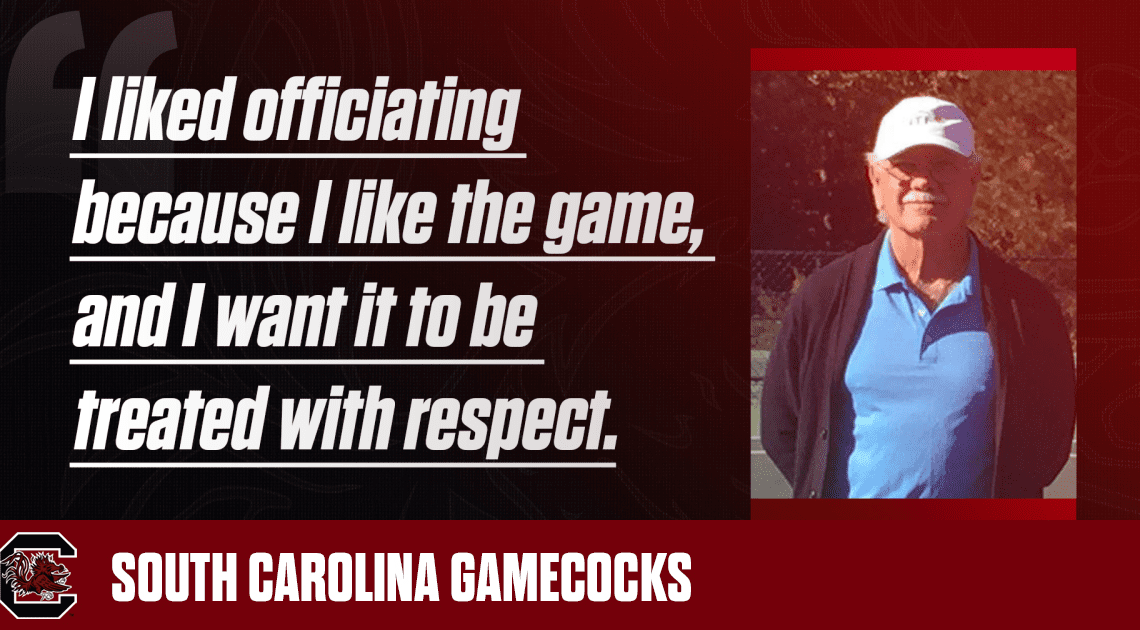Lee Ward found a home on the tennis court. Whether it was playing, officiating, or organizing officials for matches for many years, the Bainbridge, Georgia native has a passion for tennis and has been the coordinator of officials for South Carolina tennis matches since 1995. South Carolina Athletics Director Ray Tanner is presenting Ward with a framed graphic of him prior to Sunday’s women’s tennis match vs. Auburn that will be hung in the Lee Ward Officials Room in the Carolina Indoor Tennis Center. He will also be given a personal size version that he can display at home. The 76-year-old, who is retired from teaching, is still going strong and still loves everything about the game.
“It’s a challenge,” said Ward, who has been the head official for more than one thousand matches. “It’s a live action event. It’s not scripted. Anything can happen. The coaches and players are all fine people. I see coaches now that came in as juniors, and now they have children. Tennis overall is a lifestyle.
“I’ve been doing it a while. I’m kind of winding down. This level of tennis deserves the very best, and I want to get the very best people that can work.”
Ward wasn’t someone who grew up at a country club with a racquet in his hand since birth. He grew to love tennis, but he didn’t actually pick up a racquet until he started playing while serving in the U.S. Air Force in Turkey in 1964.
“The reason I chose it was I that I was a good athlete in high school,” Ward said. “I played football and had a few scholarship offers, but I went into the Air Force instead. This was during the Vietnam era. While I was in Turkey, I started going to night school for college and began to play tennis. When I left there, I went to the University of Georgia and became a very dedicated tennis player there. They had a very good team there. I practiced and practiced and studied and studied. I begged people to hit with me and hit against the wall by myself forever.”
After graduating magna cum laude from Georgia in 1968, Ward went to the Southern Illinois for graduate school on a fellowship to study anthropology. While there, he continued to play more and then started competing in tournaments.
His career in anthropology took off as he traveled to South America and Mexico. He later came back to South Carolina and started working at the University as an adjunct professor in the Anthropology Department. Ward later took similar positions in Nebraska and…

